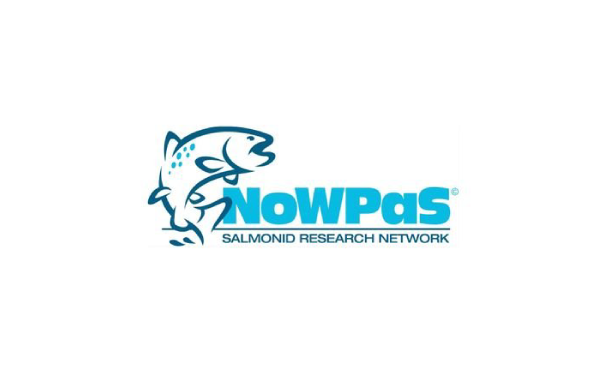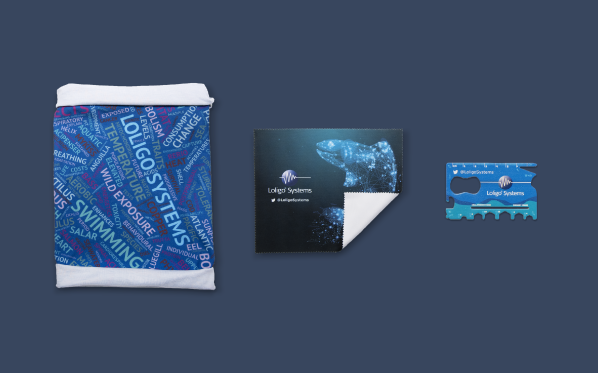News
Thu, Jan 30 2020
Why upgrade to LoliTrack 5?
The latest version of LoliTrack is out! This major upgraded version features many improvements and additions as well as a much faster performance on regular PCs.
IMPORTANT: We offer a 50 % discount to all LoliTrack 1-4 and DanioTrack license holders. This offer is valid in 2020 only. For more information, click here.
MICROPLATE TRACKING
LoliTrack 5 includes several tracking tools that will save a lot of time. An example is tracking organisms in 24-, 48-, and 96-well microtiter plates for fast screening of activity levels or locomotion:
BODY POINTS
Another example is that LoliTrack 5 can identify specific body points (tail, head, midline center, center of gravity) as well as the object midline which is especially useful for studying kinematics (tail beat frequency, body oscillations etc.) or specific behavior (direction of orientation or movement, turning rate etc.). A new parameter, “BEND”, can be calculated as well giving body angles, i.e., for automated tracking of tailbeat frequency or other body oscillations:
Nearest Neighbor Distance / Inter-Individual Distance
You can export a visual representation as well as the position data for nearest neighbor distance and inter-individual distance for multiple objects:
HEAT MAP
Heat mapping is now an option as well for specific parameters like position, speed, acceleration etc.:
ERROR CORRECTION TOOLS
Other important updates include the possibility to correct tracking errors like object identity switching or even if the object leaves and re-enters the arena.
3D TRACKING
LoliTrack 5 supports 3D tracking and analysis. With two cameras (or video files), users can track and analysis the behavior of a single object in 3D. The 3D tracking feature further allows exporting the trajectories as a 3D model or as video for data presentation:
PERFORMANCE
LoliTrack 5 has been optimized with performance in mind. On regular Windows 10 PCs, users of LoliTrack 5 will find that calibrating, creating filters and indeed tracking runs more smoothly and faster compared to the previous version, LoliTrack 4. The follow diagram shows six examples of how many seconds it took to track the same video in LoliTrack 5 compared to LoliTrack 4:
![]()
VIDEO FILE COMPATIBILITY
LoliTrack 5 now supports most video file formats unlike previous version that only handled .AVI files.
VIDEO CAMERA
Another new feature in LoliTrack 5 is the built-in video recorder. The video recorder allows the user to capture and edit videos from within LoliTrack 5 using most cameras connected to the PC.
USER-INTERFACE
The entire LoliTrack 5 interface has been redesigned to meet today’s clean and streamlined user demands. Tracking a video follows an intuitive step-by-step procedure: Load video file > Calibration > Masking > Filtering > Tracking > Analysis. Several time-saving features have been added; including the option to track a user-defined interval of the entire video or to quickly define the filter by subtracting the background.
Mon, Jan 13 2020
Sponsoring NoWPaS 2020 meeting
We are happy to be sponsoring the NoWPaS 2020 meeting at Laugarvatn, Iceland, on March 2nd – 7th. NoWPas focuses on all anadromous salmonid species and will be celebrating its 15th anniversary this year.
NoWPaS has succeeded in organizing annual workshops since its inception in Norway in 2005. Over the next fourteen years, a total of 380 early-stage researchers and 59 invited speakers have had the opportunity to give oral presentations regarding their research on salmonids.
The workshop is free for all delegates and is first come, first serve among eligible applicants.
We hope for a great meeting in Iceland!
Tue, Dec 10 2019
Loligo sponsors Nothobrancius Symposium
The Nothobranchius Symposium is a biennial meeting that serves as a platform for researchers with an interest in all aspects of Nothobranchius biology from biomedical to ecological research to meet and discuss ideas.
We will be sponsoring the 4th Nothobranchius Symposium in Brno, Czech Republic, on 3-5 June 2020, in order to support this interesting scientific community.
Official Twitter account / hashtag: https://twitter.com/Fish_EcoEvo / #notho2020
For more info about the meeting, please visit: https://notho2020.ivb.cz/
Mon, Dec 02 2019
Loligo sponsorship for EMPSEB26 meeting
We are proud to sponsor the 26th European Meeting of PhD Students in Evolutionary Biology (EMPSEB26) meeting in Killarney National Park, Ireland, by covering accommodation expenses for all the invited speakers. EMPSEB26 provides students with the opportunity to present their work to an international audience of their peers.
Please visit the official Twitter account (and use #EMPSEB26) for the meeting: https://twitter.com/Empseb26
For more info about the meeting, please visit the meeting website: https://bit.ly/2XvvIbD
Mon, Nov 25 2019
Loligo sponsors SEB symposium
Once again, we have agreed to sponsor a symposium. This time for the SEB Annual Meeting in Prague 2020. The symposium is organized by Prof. Patricia A. Wright (Univ. Guelph) and Dr. Jonathan M. Wilson (Wilfrid Laurier Univ.), and we will provide travel funds to three post docs and invited speakers: M. Mandic, S. Fehsenfeld, and M. Giacomin.
Please find a description of the symposium below:
Title: The Ins and Outs of the Ups and Downs: Respiration and Osmoregulation in Fluctuating Environments
Aquatic ectotherms are intimately linked to their environment. Daily and seasonal variation in water conditions (e.g., salinity, oxygen, carbon dioxide) often have dramatic impacts on behaviour and physiology of freshwater and marine organisms. Two critical systems, respiration and osmoregulation are linked through gill morphology and transport processes. The "osmo-respiratory compromise" describes the complex interactions between the two systems. Speakers will explore respiratory and/or osmoregulatory challenges and behaviour in invertebrates and vertebrates facing fluctuating conditions in a wide range of habitats, such as tide pools, coral reefs, mangrove forests and freshwater lakes.
Speaker / Title
- Katie Gilmour (Plenary) / The osmo-respiratory compromise
University of Ottawa, Canada - Jehan-Herve Lignot / Osmoregulation in intertidal and estuarine organisms
University of Montpellier, France - Tamzin Blewett / Diurnal and seasonal cycles and ion regulation in crustaceans
University of Alberta, Canada - Sandra Fehsenfeld / Nitrogen excretion in crustaceans
University of Quebec at Rimouski, Canada - Anne Todgham / The impact of multiple stressors on marine invertebrates
University of California-Davis, U.S.A. - Phil Munday (Plenary) / Diel CO2 cycles and the behaviour/physiology of coral reef fishes
James Cook University, Australia - Milica Mandic / Cellular responses to daily oxygen variation in fishes
University of California-Davis, U.S.A. - Lauren Chapman / Environmental change and shifts in respiratory traits of East African Fishes
McGill University, Canada - Marina Giacomin / Osmorespiratory compromise in fishes: lessons from toxicology
- University of Alberta, Canada
Wed, Oct 30 2019
New giveaways
These are new free giveaways we will be bringing to trade shows at scientific meetings and conferences in the future:
The neck gaiter is designed with a word cloud made from titles of all the peer-reviewed papers citing use of Loligo® equipment. It is a multi-functional headpiece that can keep you warm or protect you from the sunlight. The fabric is OEKO® TEX certified.

The micro fiber cloth can be used to clean your glasses, camera lenses, laptop screens etc. and is made from 100 % recycled plastic bottles!

The stainless-steel multi-tool will never rust, bend or dull. It comes with 20 tools including a mirror, nail filer, six hex wrenches, a can opener, fruit peeler, bottle opener, ruler (standard & metric), letter opener, box opener, phone stand, and a flat head screwdriver!

Please stop by our booth to get one (or two). You can find a list of coming events here: https://www.loligosystems.com/events
Thu, Sept 19 2019
P50 data on hybrid hemoglobin from high-altitude vertebrates interbreeding
Dr. Jay Storz and Anthony Signore from University of Nebraska used our BOBS™ instrumentation to measure O2 affinity (P50) of hemoglobin from Tibetan wolves and mastiffs.
This new impressive research on Tibetan mastiffs gaining high-altitude adaptation by breeding with mountain wolves is highlighted on Live Science (https://www.livescience.com/tibetan-mastiff-wolf-genes.html).
Full article:
Adaptive Changes in Hemoglobin Function in High-Altitude Tibetan Canids Were Derived via Gene
Conversion and Introgression
Anthony V Signore, Ying-Zhong Yang, Quan-Yu Yang, Ga Qin, Hideaki Moriyama, Ri-Li Ge, Jay F Storz (2019)
Molecular Biology and Evolution
Tue, Jun 25 2019
MO2 near Ucrit in rainbow trout
Yangfan Zhang and his collaborators from University of British Columbia, Canada, used a 10 L Loligo® swim tunnel to assess the dynamic nature of ṀO2active near Ucrit in rainbow trout (Oncorhynchus mykiss). The researchers used various sampling windows and introduced an iterative algorithm which generated a 23 % higher peak ṀO2active compared to conventional ṀO2 sampling rates and interval regression analysis of ṀO2active.
In the current version of AutoResp, calculating ṀO2active near Ucrit is also possible by enabling the mode “Closed respirometry” during this critical phase. This mode enables you to get MO2 values on-the-fly for any time interval you prefer!
Full article:
Finding the peak of dynamic oxygen uptake during fatiguing exercise in fish
Yangfan Zhang, Matthew J. H. Gilbert, Anthony P. Farrell (2019)
Journal of Experimental Biology
Tue, May 07 2019
Stickleback thermal preferences
Post doc Natalie Pilakouta from University of Glasgow, and her collaborators (Holar College), used the shuttle box system and ShuttleSoft to look at thermal preferences in three-spined stickleback (Gasterosteus aculeatus). The researchers find that fish from both warm (from freshwater warmed by geothermal activity) and cold (from ambient-temperature lakes) habitats had an average preferred temperature of 13 °C, which is considerably lower than the temperatures experienced by fish in warm habitats for most of the year. The results therefore claim to challenge the assumption that temperature preferences in ectotherms will readily evolve as a response to climate change.
Full article:
Temperature preference does not evolve in sticklebacks despite multigenerational exposure to elevated temperatures
Natalie Pilakouta, Shaun S. Killen, Bjarni K. Kristjánsson, Skúli Skúlason, Jan Lindström, Neil B. Metcalfe and Kevin J. Parsons (2019)
bioRxiv








